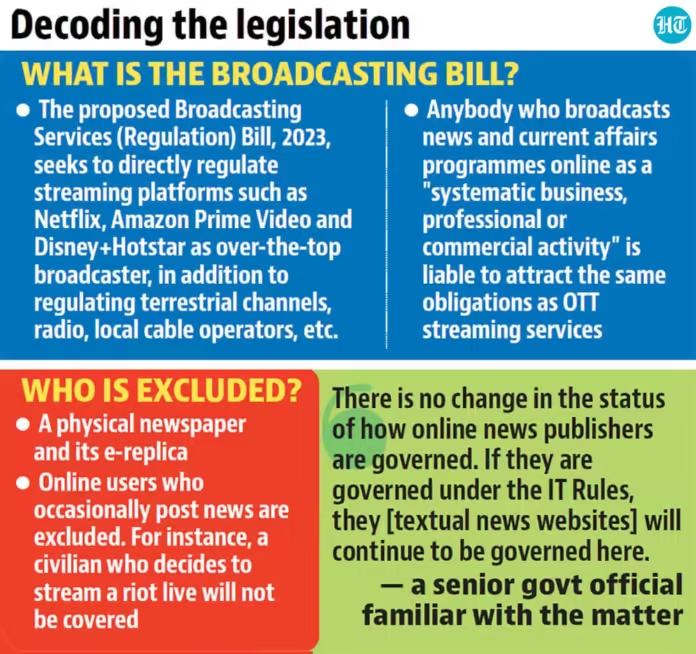The Ministry of Information and Broadcasting has retracted its controversial draft Broadcasting Services (Regulation) Bill, 2024, which had sparked widespread debate due to concerns over government overreach in online content regulation. The draft bill aimed to modernise broadcasting regulations but faced criticism for its potential implications on freedom of speech and expression.
Last month, the ministry circulated the draft bill among select stakeholders for feedback. However, recent developments indicate that the ministry has requested the return of these draft copies. A senior government official and two industry executives have confirmed this move. This decision suggests that the ministry is likely reassessing and revising the proposal.
The ministry, in response to inquiries, did not provide specific comments but released a statement on X (formerly Twitter). The statement referred to a previous draft bill from November 2023, noting ongoing consultations with stakeholders. It also mentioned that stakeholders have until October 15 to provide their comments, with a revised draft expected after detailed consultations. Notably, the statement did not clarify the status of the 2024 draft bill shared last month or the directive to return the copies.
This ambiguity has left stakeholders, particularly those who never received the 2024 draft, uncertain. An industry insider expressed confusion, stating, “Are we supposed to send our comments on the November 2023 version of the now-withdrawn draft, because a copy was never formally shared with us?”
The 2024 draft bill intended to replace the 1995 Cable Television Networks (Regulation) Act and extend regulation to over-the-top (OTT) content and digital news. However, the broader provisions of the new draft, which included social media accounts and online video creators within its scope, drew significant criticism. These provisions were seen as a potential expansion of government control over digital platforms and online content.
One of the most contentious aspects of the draft bill was its attempt to define “digital news broadcasters” to include a wide range of online content creators. This definition could have subjected independent content creators, including those on platforms like YouTube and Instagram, to registration requirements and government regulations.
The bill also proposed that OTT broadcasters meet specific thresholds for subscriber numbers and adhere to content and advertisement codes. Additionally, online content creators would have been required to establish a Content Evaluation Committee (CEC) with diverse representation, which would need to be reported to the government. This committee would oversee content certification, although certain programs like news, educational content, and government-designated categories would be exempt.
The bill also sought to align with the “Code of Ethics” from the Information Technology (Intermediary Guidelines and Digital Media Ethics Code) Rules, 2021. These rules have faced legal challenges and have been stayed by the Bombay High Court and the Madras High Court.
A senior government official had previously suggested that the expanded scope of the draft bill was influenced by the active role of independent content creators in the lead-up to the 2024 Lok Sabha elections, highlighting the government’s concerns about regulating digital content more comprehensively.
